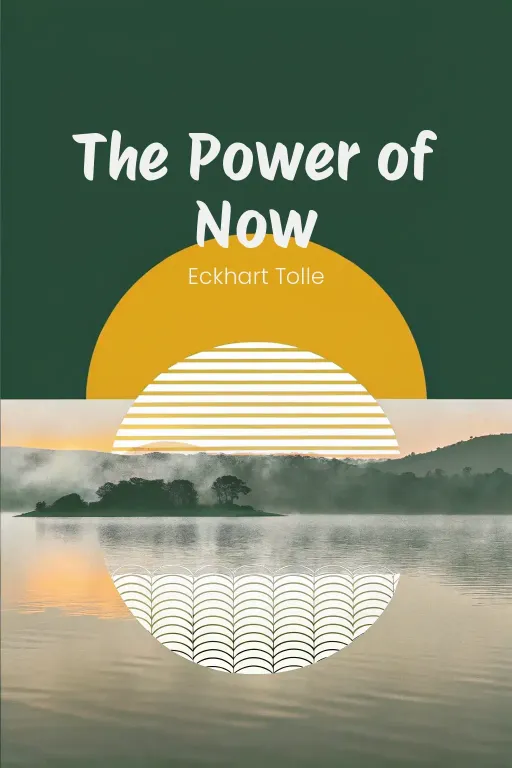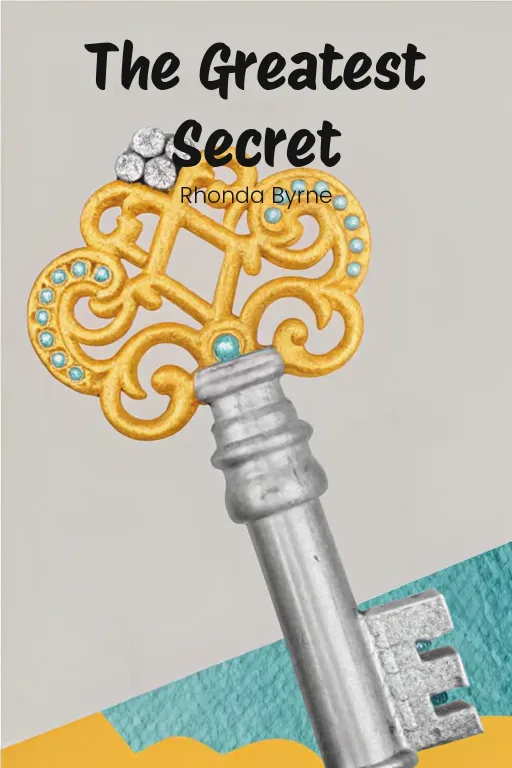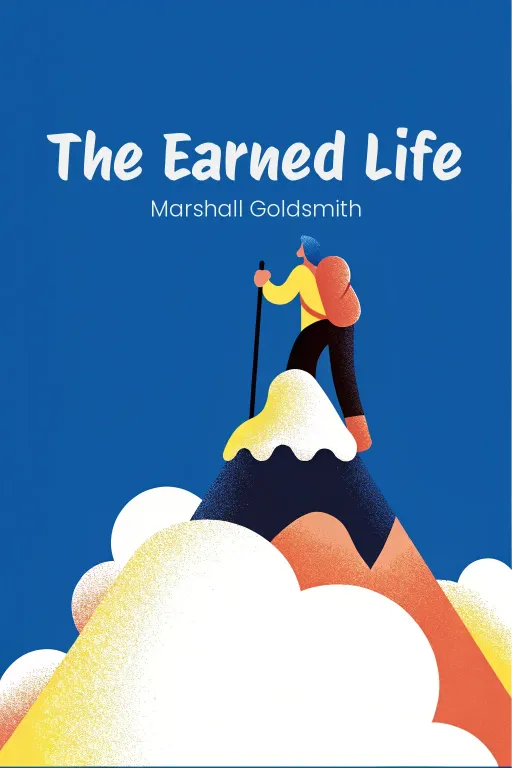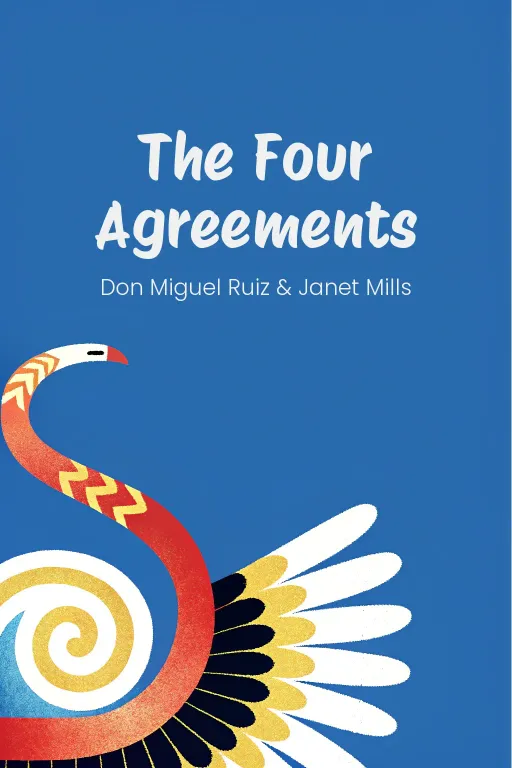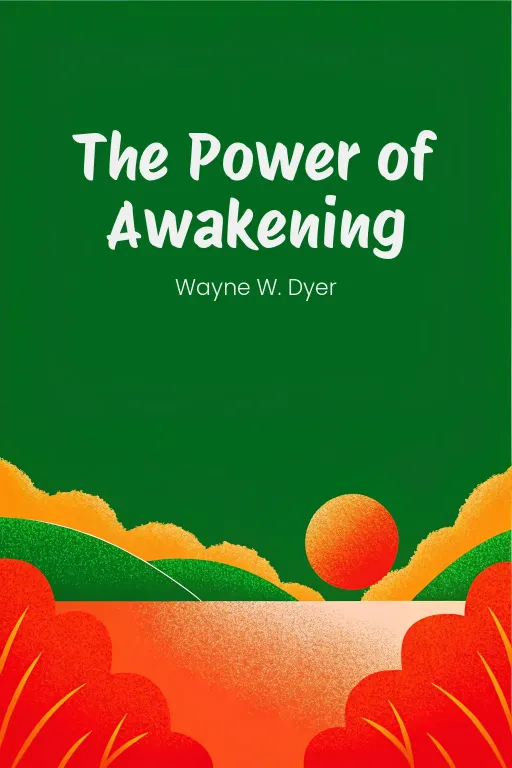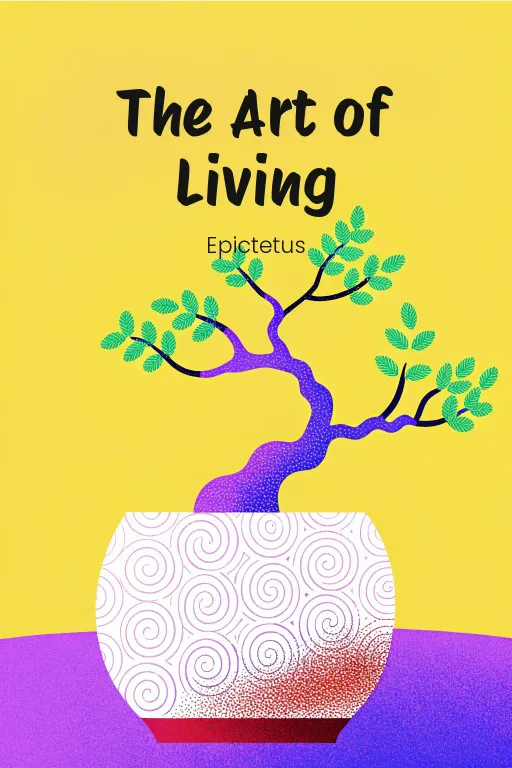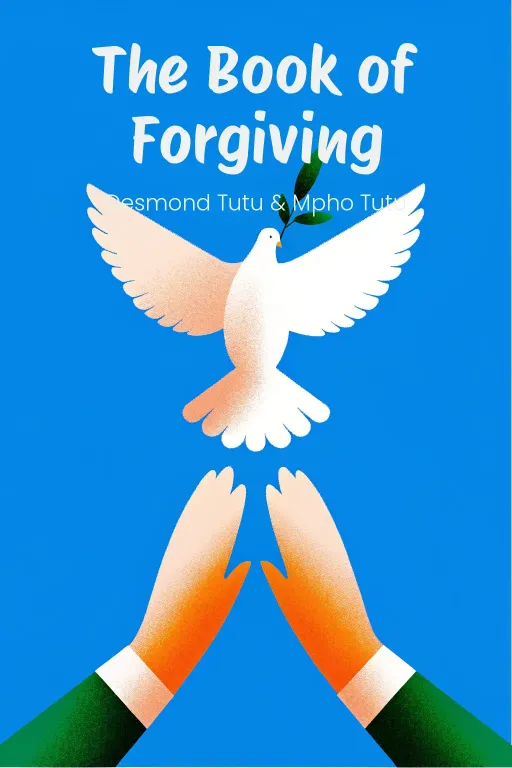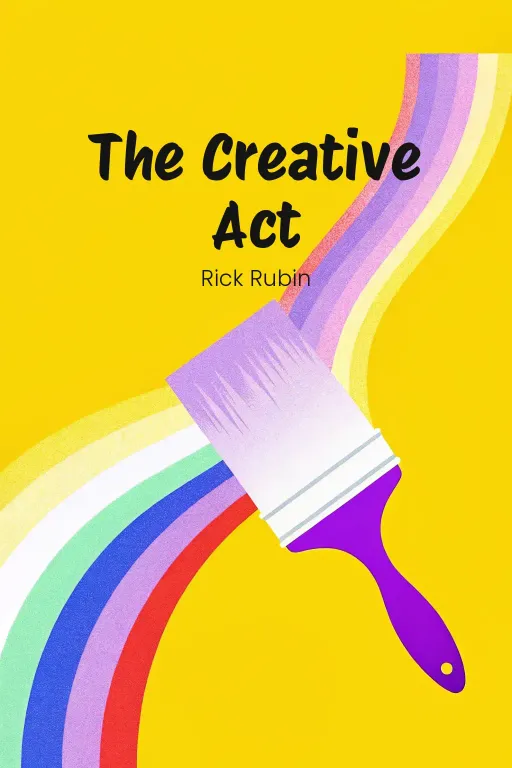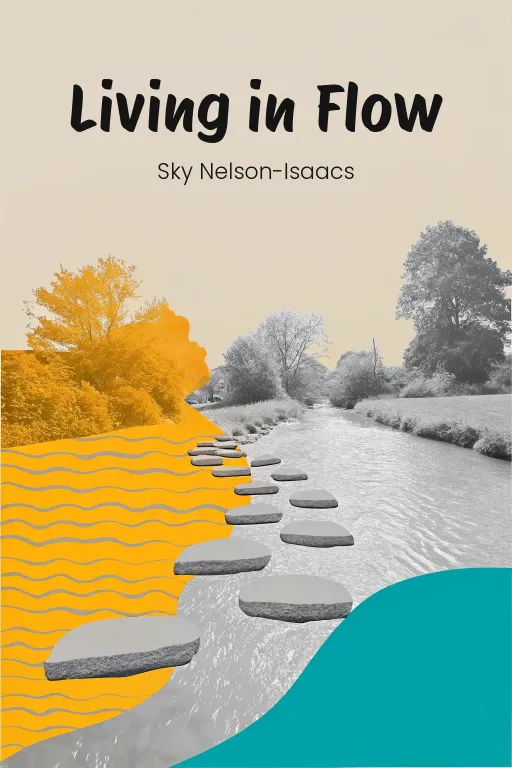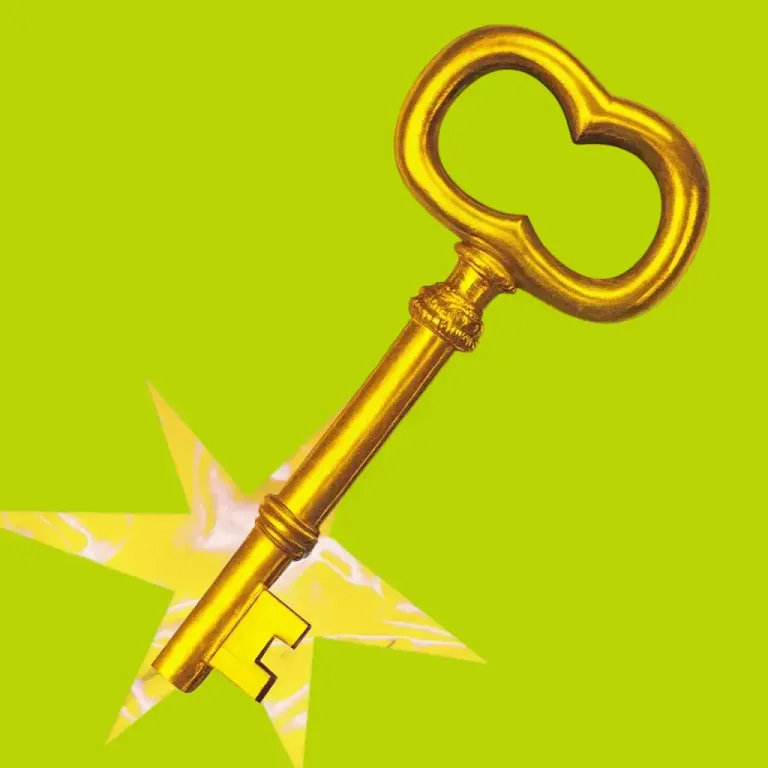
Beyond the Noise: Find Your "Awareness"
Podcast by Beta You with Alex and Michelle
Revelations and practices to end suffering and discover lasting happiness
Introduction
Part 1
Alex: Hey everyone, welcome back! Today we're tackling something super interesting: the idea that who we “think” we are – all our labels, jobs, worries – might not be the real us at all. Michelle, you ever get the feeling there's… more to you than just the everyday stuff? Michelle: <Laughs> Well, if "more" includes figuring out why I keep hitting snooze ten times every morning, then absolutely. But I suspect you're aiming for something a bit deeper? Alex: Definitely deeper! We're diving into The Greatest Secret, a book that suggests lasting happiness comes from realizing our true selves – what the author calls infinite Awareness. It's about recognizing the constant, quiet observer within us all. Michelle: Infinite Awareness? Sounds a tad… lofty for someone just trying to survive their inbox. What does that even look like in real life? Alex: <Laughs> that's the million-dollar question, right? The book breaks it down into three key parts. First, we explore what it means to actually see yourself as that Awareness. You know, the one that's silently watching your thoughts, feelings, even those really messy moments. Michelle: So, like… being the observer instead of being the drama queen? I think I get it. Alex: Precisely! And once you grasp that, the next step almost happens on its own: freeing yourself from the nonstop mental chatter and those stories we tell ourselves. It's like suddenly realizing you've had the key to unlock the door all along. Michelle: You mean I can stop endlessly analyzing that awkward interaction from 2017? Intriguing. So, assuming someone is on board with all this, what's the practical part? Alex: Exactly the right question. That leads us to the final piece: actionable tools. The book provides simple but powerful ways to cultivate this awareness in our daily routines. It's not just about theory – it's about translating insight into genuine freedom, one breath at a time. Michelle: Okay, so... uncovering this Awareness, escaping the mind's traps, and then actually living with this new understanding? Sounds like we've got quite the journey ahead of us.
Our True Nature: Awareness
Part 2
Alex: Absolutely, Michelle. And it really starts with understanding our true nature, which is Awareness. The book really makes it clear: we're not our thoughts, we're not the roles we play. Our core is something much deeper – it's the Awareness that's observing all of it. Think of it like watching a movie. You're not the characters, you're not the plot. You're the screen. You're the constant “behind” the story. Michelle: Okay, so, if I'm hearing you right, we're not the "marathon of overthinking" that we call daily life, but the “thing” that's watching the marathon? I gotta say, Alex, this feels a little detached. Are you suggesting we just disengage from our lives and become spectators? Alex: Not at all. It's not about disengaging, but shifting our “perspective”. The author talks about that shift as the difference between being “lost” in the drama of the movie versus realizing you're the screen itself. By identifying as Awareness, we don't stop living, we just stop getting completely swept away by every little twist and turn. Michelle: Okay, I see where you're going. But isn't this easier said than done? People are pretty tied to their roles, right? “Parent,” “professional,” maybe even “overachiever.” How do we even begin to pull back from those identities? Alex: Exactly. And that's where the author, and teachers like Mooji, draw a really clear line. They point out that those roles, those labels, are temporary constructs of the mind. They're like costumes we wear. For instance, you might think of yourself as "Michelle the skeptic" right now. But that's just a narrative you're telling yourself. Awareness, on the other hand, is the timeless backdrop. It's been there throughout your whole life. Michelle: So, if I get this... this awareness hasn't aged or changed with me? The same "I" that suffered through algebra is the same "I" sitting here now? That's... kind of unsettling. Alex: It is, isn't it? But think about it. When you were a kid, a teenager, now as an adult, everything external has shifted – your body, your circumstances, your beliefs. But there's this constant sense of "I" that hasn't changed. That continuity “is” Awareness. The author uses that to show how we've mistakenly identified with things that are transient instead of that steady presence underneath. Michelle: Hmm. So are you saying our problem is we over-identify with, let's just call it, the "temporary packaging"? Like, we're too busy starring in the movie to realize there's a projector “doing” all the work? Alex: Exactly! And that over-identification traps us in pain and struggle. Take David Bingham's story from the book – it's a perfect example. He spent years chasing enlightenment through all these complex spiritual practices, only to realize the truth was there all along. His breakthrough was simply recognizing that he “was” Awareness the whole time. Nothing to attain, nothing to “do” – just a shift in understanding. Michelle: Wait, so this guy spent years trying to "find Awareness" only to realize... it was kinda obvious? What does that even “mean”? It sounds like figuring out you've been wearing your glasses on your head the whole time! Alex: You know, that's a surprisingly accurate analogy! David's realization was exactly that. It's that simplicity of knowing that Awareness isn't outside of you. He stopped engaging with thoughts like, "I need to achieve this" or "I need to eliminate negative feelings." He recognized he was the one observing those ideas coming and going. And once he disidentified from them, all those years of searching just fell away. Michelle: Okay, that makes sense in theory, but let's get concrete. How does this awareness thing “work” when you're, I don't know, stuck in traffic and late for work? Or when your boss is on you? Alex: That's a great point. And this is where the book gets practical. It emphasizes that Awareness doesn't mean ignoring your emotions or stressful situations. It's about observing them “without” getting consumed. The simple question, "Am I this feeling, or am I aware of it?" is a way to create enough distance to break the cycle. So, if you're feeling overwhelmed by deadlines, instead of thinking, "I “am” stressed," you realize, "I am aware of stress arising." Michelle: So, it's not suppressing the stress, but noticing it's separate from you? Kind of like saying, "That's not “me”—it's just something I'm experiencing." I can actually see how that might lower the temperature on an emotional meltdown. Alex: Exactly! And the metaphor the book uses is the sky and the clouds. You know, our thoughts and emotions are like the clouds. Sometimes stormy, sometimes clear. But the sky always remains untouched, no matter the weather. Just recognizing yourself “as” the sky, as the Awareness, it can radically change how you respond to the ups and downs. Michelle: I can see how that might calm you down when you're in your inner chaos, but what about the bigger stuff? Some deeper fears, or anxieties, the kind that don't just float away like clouds? Alex: Yeah, that's a critical distinction to make. The book doesn't promise that fear or pain instantly disappears, but it shows how to stop “feeding” those emotions by resisting them. So, instead of fighting the fear, you acknowledge it with curiosity. "Fear is here, but I am not fear, I am the one who's “aware” of it." And that creates a profound space between you and the emotion, allowing it to dissolve on its own. Michelle: Hmm, okay. And where does this idea of "liberation" fit in? Does recognizing Awareness go beyond handling specific emotions, or is it something bigger? Alex: It's absolutely universal. Liberation, as described in the book, is about realizing you're infinite – free from the limitations of time, physical form, even societal pressures. Awareness is limitless. It doesn't worry about the past or fear the future, because it exists outside those constructs. It's like discovering a hidden superpower that makes life feel lighter, more expansive. Michelle: Limitless, huh? I'd settle for slightly less stressed. But I get your point – it's about stepping out of the mental maze and seeing the bigger picture. And I have to admit, as much as I question things, this idea of Awareness does sound both simple “and” transformative.
Freedom from the Mind
Part 3
Alex: And that realization naturally leads us to question the mind itself, and all the illusions it creates. If Awareness is truly who we are, Michelle, then the mind—while useful, of course—has honestly been hogging the spotlight for far too long, wouldn't you agree? This book really calls this out: it’s not about getting rid of the mind completely, but learning to live with it, by understanding how it can trick us. Michelle: Tricks, eh? I always suspected my brain was up to something. But in its defense, the mind pretty much runs the show for most of us, right? I mean, it's how we plan, process information, and, you know, make sense of the world. How can it “also” be the cause of our suffering? Alex: You're spot on—the mind is a powerful tool, no doubt. The trouble is when we start mistaking the tool for the one in charge. The book explains it nicely: the mind is constantly creating these narratives, loops of thought that we mistakenly think are reality. These thought patterns can drag us into regret about the past, fear of the future, or just general anxiety, and totally steal us away from the present moment. That's also why the first step to freedom is realizing that these thoughts are just that—thoughts. Not necessarily facts. Michelle: That's a bold statement. What about those thoughts that feel undeniably true—like “I’m just not good enough,” or “I’m failing miserably”? Those narratives have some serious emotional weight. Are we supposed to just shrug them off and say, “Oh, that’s cute, but I’m Awareness, remember?” Alex: <Laughs> Not exactly that casually, but you're on the right track. The book offers Jan Frazier’s insight and frames this beautifully—she says, “It isn’t necessary for the mind to be quiet. All that matters is that you not listen to what it’s saying, as if it were true.” Think about replaying a mistake at work, for example. You might catch yourself thinking, "Ugh, I “always” mess up," and that can spiral into anxiety or shame. But, if you observe the thought instead of identifying with it, you can see that it is just... noise. Michelle: So, it's almost like the mental version of labeling a headline as “clickbait.” You see it, but you don’t have to click on it or get sucked in. But still, how do you stop believing it once it’s already taken root in your head? Alex: That’s where tools like Byron Katie’s questioning technique come in handy. She encourages us to question our thoughts directly. For example, if you catch yourself thinking, “I’m a failure,” you then ask yourself, “Is this “actually” true? Can I absolutely “know” that it's true?” Often, you'll realize that the belief isn't as rock solid as you thought. Then she takes it a step further—“Who would I be without this thought?” That simple question alone can be enough to create space for a major shift in perspective. Michelle: So instead of just sitting there, stewing in self-doubt, you basically become a detective, investigating your own thoughts? I like that—it turns self-doubt into something productive. But what happens when the thought is tied to something deeply emotional, like, say, anger or grief? Alex: Those are powerful emotions, no doubt. But the book points out that even they are temporary. They only stick around because we resist them or fight against them. Lester Levenson's story is a great example. He spent years chasing external success, and it ended up leaving him completely empty. After a health scare forced him to rethink things, he realized that resisting life—holding onto expectations and judgments—was the source of a lot of his unhappiness. So, instead, he started observing his feelings without resistance, allowing them to simply pass through him. And guess what happened next? Michelle: Let me guess: he suddenly stopped caring about anything that used to bother him? Alex: <Laughs> almost! He discovered a level of happiness and clarity that was beyond any kind of success he'd achieved before. It wasn't magic, though. It was the result of letting go of his need to control or judge his emotions. Rupert Spira puts it nicely: “If you stop resisting an emotion, it cannot stand.” The energy that fuels the emotion dissolves when you allow it to simply be. It’s like consciously unclenching a fist—the tension just fades. Michelle: Alright, so this "stop resisting" thing sounds good in theory, but how do you deal with a mind that just won't quit? Like in the middle of a really heated argument, or when you’re stuck replaying a breakup? It’s not exactly easy to just step back and say, “Oh look, I’m Awareness, watching this go down.” Alex: Exactly! That’s why the practice of observing is so important. Awareness doesn’t necessarily mean suppressing what you feel in that moment—it means recognizing, "Okay, anger is arising within me, but I am “not” the anger." By identifying yourself as the observer, and not the emotion itself, you loosen its grip. And over time, this practice builds resilience. The Shakespeare line, “There's nothing either good or bad, but thinking makes it so,” really applies here. Even our most intense experiences take on a different quality when we recognize them for what they are: mental projections. Michelle: Okay, I get the idea. But does this only work for emotions, or does it apply to our perception of problems in general? Like, say I hate my neighbor who’s constantly stomping around upstairs—is that also just my mind, "projecting my inner turmoil," or something? Alex: Actually, that’s a perfect example. The book talks about how our external challenges are often linked to the stories we tell ourselves internally. Let's take the noisy neighbor example. Once you start questioning your narrative—"Why do I assume they’re inconsiderate? Is it possible they don’t even realize they’re making so much noise?"—you might discover all sorts of assumptions or frustrations that aren't necessarily rooted in reality. Someone in the book reframed their own conflict at work, by questioning their beliefs, and it led to incredible turnaround, resolution, and, ultimately, better communication. Michelle: So basically, the problem wasn’t just the stomping – it was what my mind “decided” about the stomping? I’m not gonna lie, that’s a little humbling. But I can also see how reframing things could help you avoid a lot of unnecessary conflict. Alex: Exactly. The core idea is that most of our suffering isn't caused by external events themselves, but by the meaning we attach to them. And when we step outside of those mental projections, life has a funny way of getting simpler. Even the most everyday experiences—like noticing the sunlight on your skin, or listening to the birds singing —can help anchor you to the present. Michelle: And that’s the whole "power of now" concept, right? Eckhart Tolle’s thing, right? Alex: You got it—Eckhart Tolle, Peter Dziuban, and tons of others emphasize that the mind’s narratives tend to drag us either into regrets about the past or worries about the future. But real life can only be experienced in the present moment. This is how the illusion of time begins to break down. When you bring Awareness solely to the now, your stories take a back seat, and what are you left with? Clarity. Peace. Life, fully experienced.
Practical Tools for Awareness
Part 4
Alex: So, with that clarity in mind, let's dive into how we can actually dissolve negative emotions and beliefs, shall we? We're moving from theory to practical steps now, offering actionable ways to bring Awareness into our daily lives, which should foster both personal and collective growth. Michelle, let's talk about the real tools that can help us implement this Awareness. Michelle: Yes, please! Because these grand ideas? Love 'em, but if they just float around in the abstract, they're not much use when I'm, you know, dealing with everyday stuff. So, what's the first concrete thing we can do to make this “Awareness” actually useful? Alex: The first tool, and perhaps the simplest, is also one of the most profound: simply asking yourself, "Am I aware?" This question invites you to simply pause the mental chatter you're probably stuck in and reconnect with the present moment. It’s really not about finding a verbal answer. The real goal is to guide your attention inward toward that quiet Awareness that’s always available. Michelle: "Am I aware?" Hmm. So, instead of just spiraling into a web of overthinking, I can use this question like a mental… reset button? Like slamming on the brakes for runaway thoughts? Alex: Exactly! Imagine someone gripped by anxiety about an upcoming presentation. Their mind is racing, right? "What if I mess up? What if I don’t sound credible?" Now, asking "Am I aware?" disrupts all that. It creates a little space where they can detach from the story their mind is telling and find some calm. Michelle: So, it's like zooming out from the mental chaos to realize there's this quiet, constant perspective behind it all – Awareness. But does this actually work, or does it feel a bit…forced in the heat of the moment? Alex: Like anything, it definitely takes practice. But really the key is to keep it simple. Think of it as just pressing pause. Over time, that question will naturally pop up when you're overwhelmed, either emotionally or mentally. The book actually mentions a person in that exact situation—panicked about a work presentation. The moment they paused and asked, “Am I aware?”, they felt an immediate shift. The tension eased up just enough to prepare without being crushed by their fears. Michelle: Okay, I see the potential there. So, what comes after this "awareness pause"? Do you just keep asking the question until the stress magically vanishes? Alex: The second step goes a little deeper. Instead of just asking the question, you start noticing Awareness itself. Think of Awareness as the background to everything you experience. By paying attention to this, you begin to shift your identity. You stop seeing yourself as the main character caught in the drama and start identifying as the person watching the entire performance. Michelle: Right… the whole "I'm the movie screen, not the movie" idea. But how do you actually notice Awareness? Feels a bit subtle, doesn't it? Like staring too hard at one of those optical illusions. Alex: It can feel subtle at first, but it’s not as abstract as it sounds. Take, for example, a woman at a family gathering who’s overwhelmed with feelings of insecurity. She's stuck in thoughts like, "Everyone’s doing better than me," or "Why can't I measure up?" Instead of identifying with those thoughts, she's guided to just sit still and observe what's happening within her. As she notices Awareness—that neutral presence beneath all of her feelings—she recognizes that those thoughts aren’t her. They're just fleeting events. And with that shift, her insecurity starts to lose its power. Michelle: So, it's not about fighting the negative thoughts, but seeing them as just passing visitors and not permanent house guests. I like that. But, you know, life doesn't exactly pause while you’re trying to notice Awareness. How do you sustain it? Alex: That leads us to the third tool: staying as Awareness. It’s not about rigidly holding onto the experience, but gently bringing your attention back whenever you catch yourself getting lost in thought. Think of it as widening your mental lens. When we’re stressed or anxious, our minds tend to “zoom in,” focusing too much on one thing—like a deadline, or an argument. But by staying as Awareness, you "zoom out" to see the bigger picture. Michelle: Like switching your camera from macro to panoramic mode—nice analogy. But give me a real-world example. Alex: Sure thing. Picture someone who just missed out on a big promotion. Their mind spirals, right? "I’ve ruined my career," or "I’ll never catch up." By consciously staying as Awareness, they shift out of that narrow, dramatic storyline. They broaden their perspective, seeing that missed promotion as just one little moment in a longer journey. It doesn’t erase the disappointment, but it does allow them to handle it with acceptance and composure, rather than being consumed by self-doubt. Michelle: I appreciate that perspective. It’s like not panicking about the next chapter when you trust the entire book will unfold as it should. But sometimes emotions are just overwhelming. Grief, anger… You can’t just "zoom out." How does Awareness handle those moments when things feel too intense to calmly observe? Alex: Excellent question! And that is where the fourth tool comes into play: welcoming emotions. Instead of resisting or suppressing those intense feelings, the idea is to make room for them—to fully feel them without any judgment. It might sound a bit counterintuitive, but resistance is what often amplifies emotions. When you welcome them, they naturally loosen their hold over time. Michelle: Welcoming feelings like anger or grief? Isn't that dangerously close to wallowing in them or indulging in them too much? Alex: Not at all. Welcoming definitely doesn’t mean wallowing—it’s actually the opposite of indulgence. What we’re talking about is allowing emotions to arise without attaching extra stories or resistance. For example, the book shares a story about a father who was grieving deeply but suppressing his sadness, believing it made him stronger. Once he learned to welcome his grief without judgment, he found that the weight lifted over time. He was able to move from just feeling numb to a place where he could honor his loss and still feel peaceful moments. Michelle: So, it’s about working through the emotion instead of fighting it. Almost like letting a wave pass over you instead of frantically trying to outrun it? Alex: Exactly. Resistance is like building a dam to block a river—it just creates pressure until something bursts. Welcoming is removing the dam and letting the water flow naturally. It transforms how we relate to our emotions, softening that inner resistance and opening us up to healing. Michelle: Hmm. I can’t really argue with how simple and logical these tools sound. Still, they seem a little paradoxical, too, right? Like, to get closer to the problem, you first have to step back. And you’re supposed to welcome what you’d probably rather avoid. But I guess that’s the beauty of it: simplicity that’s still sharp enough to cut right through complexity. Alex: Totally! And that’s the best part. These tools can work for you any time and any place. No matter how busy or chaotic life gets. And instead of adding more complexity, what they do is strip things down to the most fundamental truths, allowing you to approach even the heaviest emotions with a sense of lightness and clarity.
Conclusion
Part 5
Alex: So, to bring everything full circle, our conversation today really highlights this profound truth: at our core, we are pure Awareness. That silent observer, you know, the one behind all those thoughts, feelings, and experiences. By stepping back from the mind's endless chatter and not getting caught up in its stories, we unlock a sense of freedom and peace that's always been there, inside us. Michelle: Right. And we talked about some useful tools, things like questioning "Am I aware?", noticing the Awareness that exists apart from our thoughts, choosing to be that silent observer, and even embracing emotions instead of fighting them. Each one gives us a tangible way to stay grounded, particularly when life feels chaotic. Alex: Precisely! And if our listeners take away just one thing, let it be this: lasting freedom and joy don’t come from fixing external problems. They arise from reconnecting with that inherent Awareness within. Begin by simply pausing and asking yourself, "Am I aware, right now?" You never know what positive changes that single moment of reflection might spark. Michelle: And look, if nothing else comes of it, it’s a strong reminder that we are so much more than just the constant noise inside our heads, you know? I think I’ll give this whole Awareness thing a shot—at least until life throws another curveball my way.
